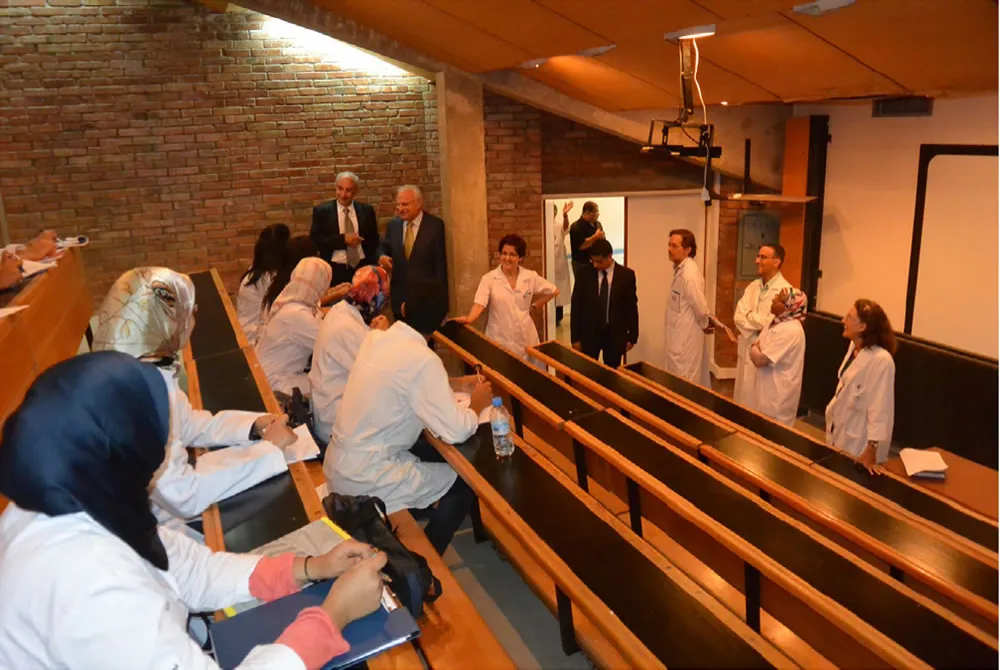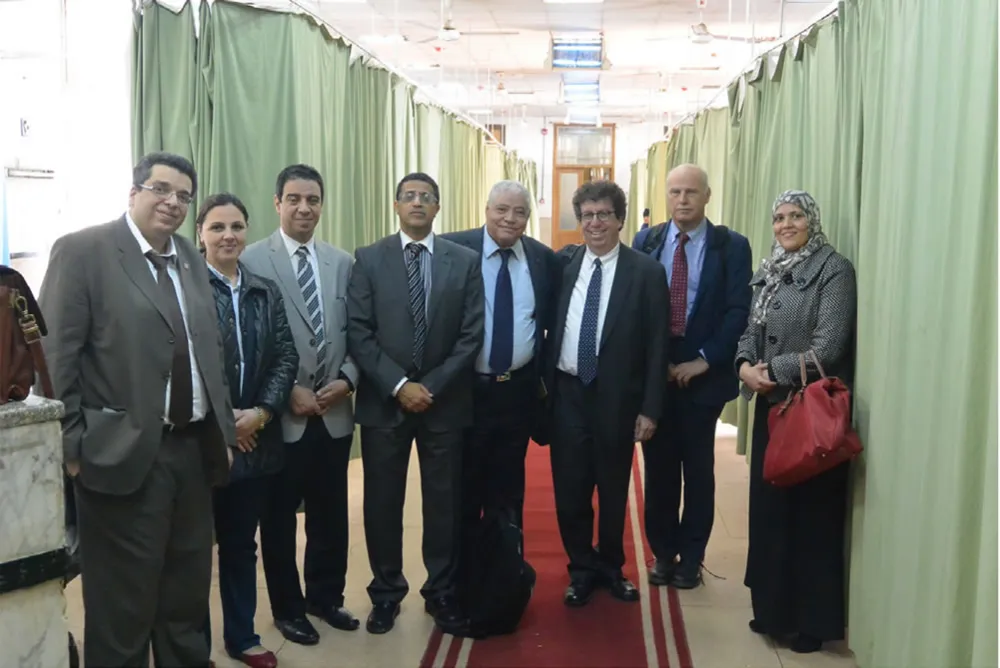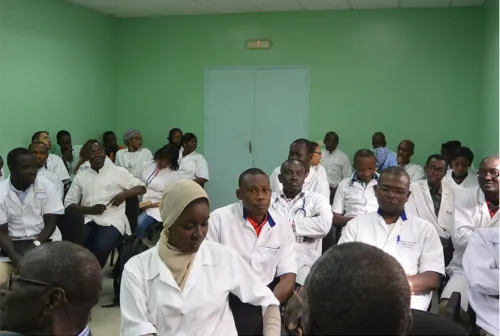WFN Training Centres
The WFN:s mission is to teach and facilitate delivery of neurology health care worldwide. This mission includes liaising with neurological departments to ensure that a high standard of training is provided, which is appropriate for the area in which it is located.
2025 Applications
Mohamed V University1-Year Neurophysiology
|
Cheikh Anta Diop University1-Year Epilepsy
|
Mexican Academy of Neurology1-Year Stroke
|
Becoming a WFN Training Centre
Training Centres (TC's) should be neurological units connected to other specialities. Ideally, these should be fully equipped with varying facilities and teaching faculty.
The WFN offers the opportunity for TC's to have their facilities and teaching methods reviewed so that WFN endorsement can be awarded. For more information regarding the approval process and for information on applying for a Training Centre visit, please click here or contact us.
Approved Training Centres
Africa
- Medical University Department of Neurology, University of Rabat, Morocco
- Cairo University, Cairo, Egypt ⧉
- Dakar, Senegal ⧉
- Cape Town, South Africa
America
- Mexican training centres
About WFN Training Centres
 Educated and well-trained neurologists improve global care in neurology. Education is conventionally classified into pre-graduate (medical school) education, residency and fellowship training, and continuing medical education.
Educated and well-trained neurologists improve global care in neurology. Education is conventionally classified into pre-graduate (medical school) education, residency and fellowship training, and continuing medical education.
Training in neurology varies in many countries of the world with regard to duration, content, and methods. There are several reasons for these differences, including historical development and cultural background; however, from a practical standpoint, the most important reasons are differences in health systems, which require different profiles for practising neurologists. The knowledge, skills, and core competencies which must be acquired during training need to be maintained lifelong and continuously updated and improved, and adapted to the specific needs of the population. The differences in manpower, spectrum, and practice profile have been described for Europe [1] and, more recently, worldwide [2].
 The focus of the educational activities of the WFN is on the countries that are most in need worldwide. Pioneering work in neurologic education has occurred in Africa by many individuals, societies, and several western universities, and by a number of educational WFN activities. WFN neurologic educational activities include visiting professorships, training and teaching courses, caravans, and department visits for young neurologists from developing countries to do short-term observerships in established Western neurology departments.
The focus of the educational activities of the WFN is on the countries that are most in need worldwide. Pioneering work in neurologic education has occurred in Africa by many individuals, societies, and several western universities, and by a number of educational WFN activities. WFN neurologic educational activities include visiting professorships, training and teaching courses, caravans, and department visits for young neurologists from developing countries to do short-term observerships in established Western neurology departments.
Also, the WFN Junior Traveling Fellowship program has been in place for several years, which provides funding for young neurologists to travel to international congresses and workshops.
The concept of the WFN Training Centres
 One important aspect of neurologic education is the need not only to train individuals, but to train individuals locally; moreover to establish training institutions in Africa for Africans, in the Americas for Central and South Americans, and hopefully in the near future in Asian countries for Asian trainees in need. The WFN Training Centres fulfil the established WFN criteria to provide a high quality of training and teaching. The underlying concept is to enhance and empower regional teaching and academic neurology, thereby increasing local competence and growth.
One important aspect of neurologic education is the need not only to train individuals, but to train individuals locally; moreover to establish training institutions in Africa for Africans, in the Americas for Central and South Americans, and hopefully in the near future in Asian countries for Asian trainees in need. The WFN Training Centres fulfil the established WFN criteria to provide a high quality of training and teaching. The underlying concept is to enhance and empower regional teaching and academic neurology, thereby increasing local competence and growth.
Training centres of the WFN must be within a public and accessible university. This university must be embedded in a structure of multidisciplinary and multi-professional departments such as radiology (including neuroradiology), internal medicine, neurosurgery, neuropathology, microbiology, and genetics, as well as rehabilitation units and other allied fields needed for the optimal treatment of neurological patients. The trainees not only need to learn, adapt, and absorb the healthcare system, the hospital, the university structure, and neurological knowledge, but must have practical exposure to patients, thereby gaining practical experiences and skill acquisition. The care for patients with neurological diseases must include inpatient and outpatient care, as well as exposure to neurologic rehabilitation and palliative care. Neurologists are increasingly involved in stroke unit service and neurointensive care, and in some regions, local needs such as management of neurologic infections may be a priority. Teaching and training of students and doctors
Teaching and training of students and doctors from other specialities should be should be available, as well as academic opportunities including access to research and other forms of scholarship. All trainees need to be made aware that their scholarship in a Training Centre is just the beginning of a future mission to teach, promote, and advocate for neurology and quality neurological care in their own region.
Read more:
Teaching centers of the World Federation of Neurology – A concept to provide training resources from within
Grisold, Wolfgang et al. Journal of the Neurological Sciences , Volume 379 , 25 - 28
References
-
W. Grisold, R. Galvin, V. Lisnic, J. Lopes Lima, E. Mueller, S. Oberndorfer, D.B. Vodusek, UEMS-EBN and EFNS Education Committee. One Europe, one neurologist? Eur. J. Neurol. 14 (2007) 241–247.
-
A. Steck, W. Struhal, S.M.Sergay, W.Grisold, et al., The global perspective on neurology training: the World Federation of Neurology survey, J. Neurol. Sci. 334 (2013) 30–47.







